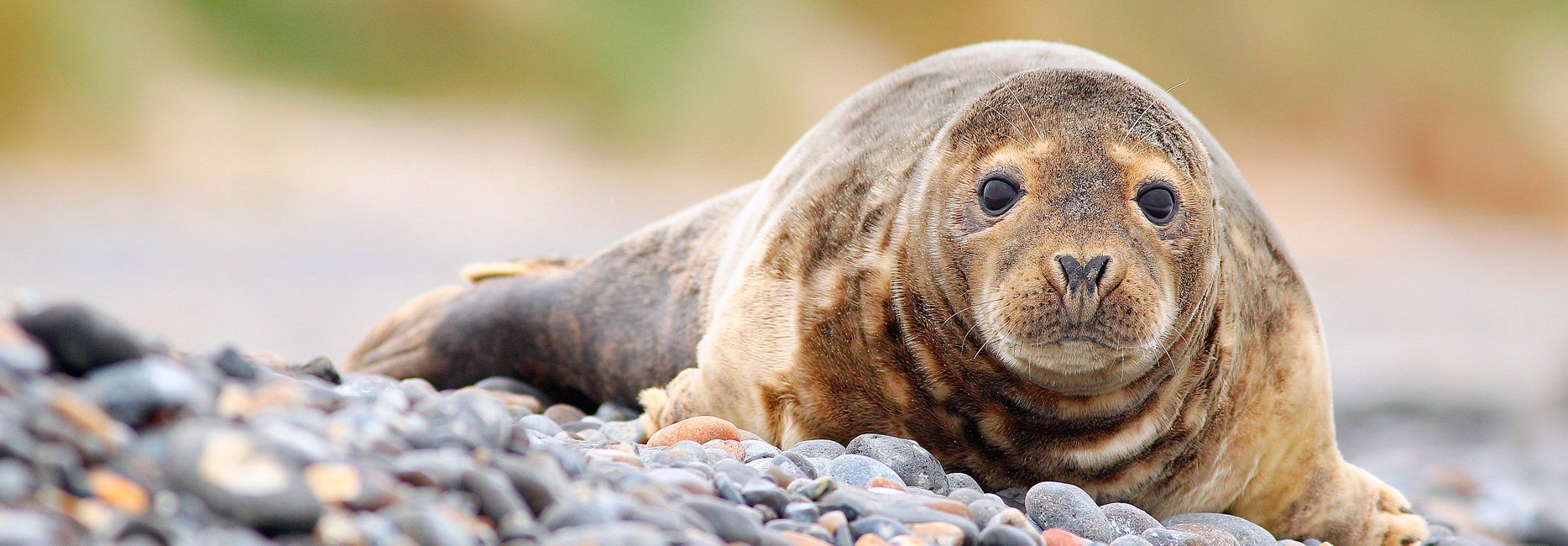
SEALS
SEALS ON LAND
Seals will often haul themselves onto the shore to soak up the sun and take a rest, sometimes for up to a week at a time. This is even more common during mild winters when there is a lack of sea ice, because the beach becomes the only place to do this. Resting seals should be given lots of space and pets kept away.
-
Things to look for when you find an adult seal on the beach to determine if it needs help:
Entanglement
Any blood or obvious wounds
Heavy, laboured breathing
Shivering/shaking
Discharge present around the eyes and/or nose
Should have no neck and look very plump with no rolls, hip bones should also not be noticeable
Lethargy, with little to no reaction to its surroundings
If you notice a seal with one or more of these symptoms, please call the Marine Animal Response Society (MARS) 1-866-567-6277. Or our wildlife emergency hotline 902-407-9453 for advice!
-
Seals will also undergo a moulting period during certain times of the year where they can be found on land for extended periods of time. Moulting requires a lot of energy and an increased amount of blood flow to their skin so in order to preserve energy and keep their body temperature up, they must haul out on to land. During this time their coats may look dull or sparse, as their new coat comes in. It is important to not disturb the seals during this time to prevent them from exerting more energy than required. Four of the most common seals found in Nova Scotia and their moulting periods can be found below:
Grey seals: May - June
Harbour Seals: May - June
Harp Seals: April - May
Hooded Seals: June - July
BABY SEALS
Baby seals are born on land or sea ice, and their mothers leave them there while they return to the water; periodically, they will return to feed their pups.
To determine if a seal pup is in need of help, look for any of the following:
open wounds, bleeding, or obvious injuries
entanglement
discharge from eyes or nose
rolls of skin (young seals should be very fat; if there are rolls in the skin it indicates that they are thin
crying and seeking attention (often indicating that they are hungry)
mother suspected or confirmed dead
-
Pupping season for the 4 common Nova Scotia species:
Grey seals: December - February
Harbour seals: May - July
Harp seals: February - March
Hooded seals: March - April
